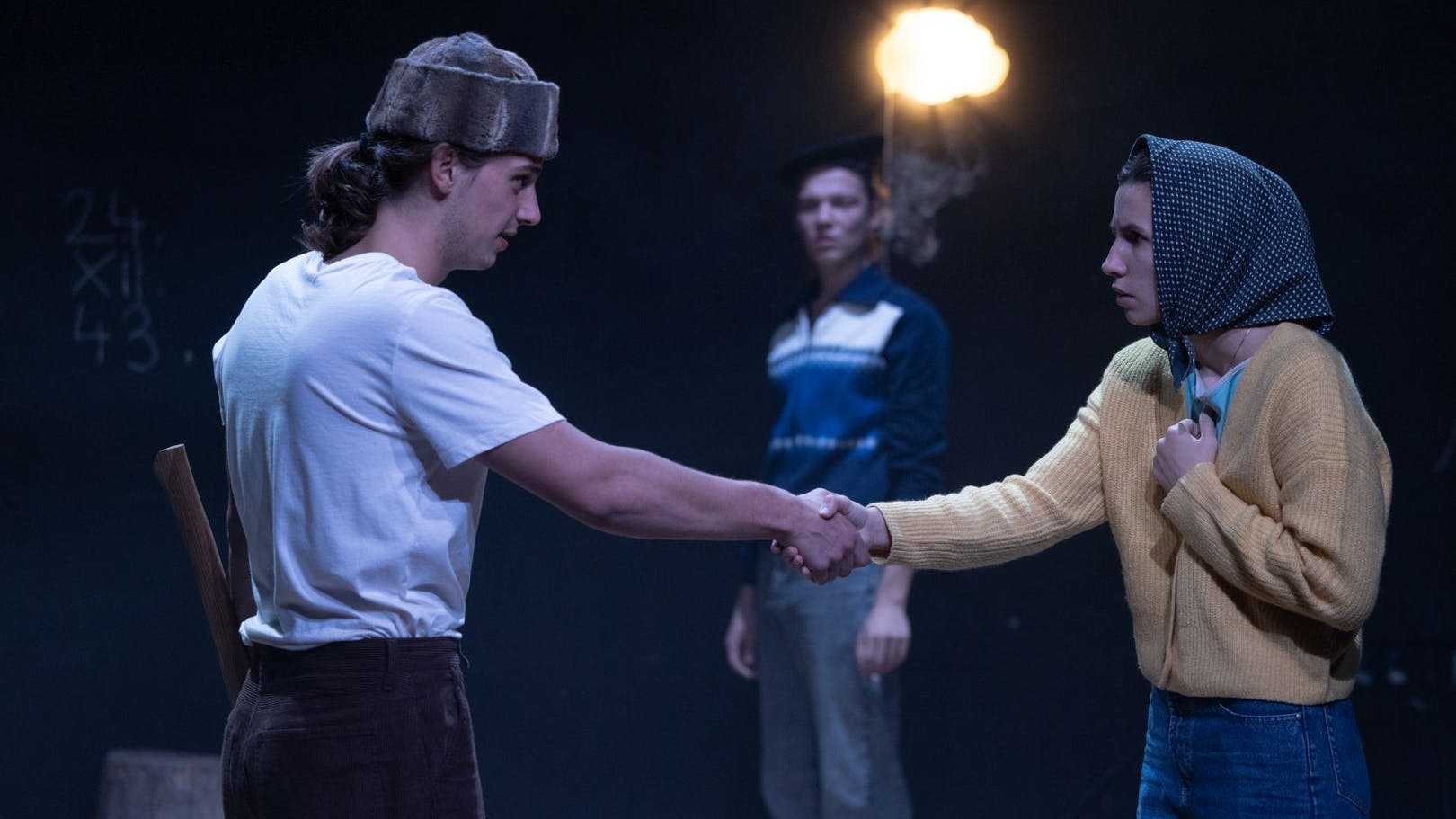The Ballad of the Trumpet and the Cloud

18:00
Presale price: 15 €
Regular price: 20 €
Premiere 11. 10. 2024, Mini Theatre
The performance is the master's thesis of director Žiga Hren.
The dramatization of the novel is a collaborative work of the entire creative team.
Running time: 2 hours 40 minutes, with one intermission.
Post-performance discussion with the artists.
Director Žiga Hren
Dramaturg Iva Štefanija Slosar
Set designer Karolína Kotrbová
Costume designer Nina Čehovin
Music selection and sound designers Lucas Carboni Kopše, Žiga Hren
Composer of "Majcnova pesem" Lucas Carboni Kopše
Lighting designer Domen Lušin
Language consultant Martin Vrtačnik
Cast
Neža Dvorščak, Alja Krhin, Marko Rafolt, Jure Šimonka
The Ballad of the Trumpet and the Cloud by Ciril Kosmač is considered one of the most important Slovenian novels of the second half of the 20th century. In it, Kosmač depicts the story of his alter ego, the writer Peter Majcen, who decides to write a novel about the old Tolmin farmer Temnikar. In this way, two stories intertwine within the novel: the story of the creative process of the writer Majcen and the story of the last day of Jernej Temnikar, who leaves his family on Christmas Eve in 1943 to save captured and wounded partisans from a massacre.
The creative team of the performance is primarily composed of the youngest theatre makers. At the core of their creative process are questions of an artist’s social responsibility and the wartime era they have not experienced. What do the stories of our (great-)grandparents and their families tell us today? And how valuable is artistic creation if, in our daily preoccupation with ourselves, we so often fail to hear those around us?